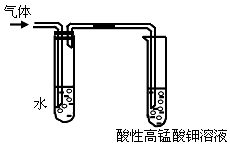A deal is a deal—except, apparently, when Entergy is involved. The company, a major energy supplier in New England, provoked justified outrage in Vermont last week when it announced it was reneging on a longstanding commitment to abide by the state’s strict nuclear regulations.
Instead, the company has done precisely what it had long promised it would not challenge the constitutionality of Vermont’s rules in the federal court, as part of a desperate effort to keep its Vermont Yankee nuclear power plant running. It’s a stunning move.
The conflict has been surfacing since 2002, when the corporation bought Vermont’s only nuclear power plant, an aging reactor in Vernon. As a condition of receiving state approval for the sale, the company agreed to seek permission from state regulators to operate past 2012. In 2006, the state went a step further, requiring that any extension of the plant’s license be subject to Vermont legislature’s approval. Then, too, the company went along.
Either Entergy never really intended to live by those commitments, or it simply didn’t foresee what would happen next. A string of accidents, including the partial collapse of a cooling tower in 207 and the discovery of an underground pipe system leakage, raised serious questions about both Vermont Yankee’s safety and Entergy’s management—especially after the company made misleading statements about the pipe. Enraged by Entergy’s behavior, the Vermont Senate voted 26 to 4 last year against allowing an extension.
Now the company is suddenly claiming that the 2002 agreement is invalid because of the 2006 legislation, and that only the federal government has regulatory power over nuclear issues. The legal issues in the case are obscure: whereas the Supreme Court has ruled that states do have some regulatory authority over nuclear power, legal scholars say that Vermont case will offer a precedent-setting test of how far those powers extend. Certainly, there are valid concerns about the patchwork regulations that could result if every state sets its own rules. But had Entergy kept its word, that debate would be beside the point.
The company seems to have concluded that its reputation in Vermont is already so damaged that it has noting left to lose by going to war with the state. But there should be consequences. Permission to run a nuclear plant is a public trust. Entergy runs 11 other reactors in the United States, including Pilgrim Nuclear station in Plymouth. Pledging to run Pilgrim safely, the company has applied for federal permission to keep it open for another 20 years. But as the Nuclear Regulatory Commission (NRC) reviews the company’s application, it should keep in mind what promises from Entergy are worth.
By entering into the 2002 agreement, Entergy intended to()
A. obtain protection from Vermont regulators
B. seek favor from the federal legislature
C. acquire an extension of its business license
D. get permission to purchase a power plant


